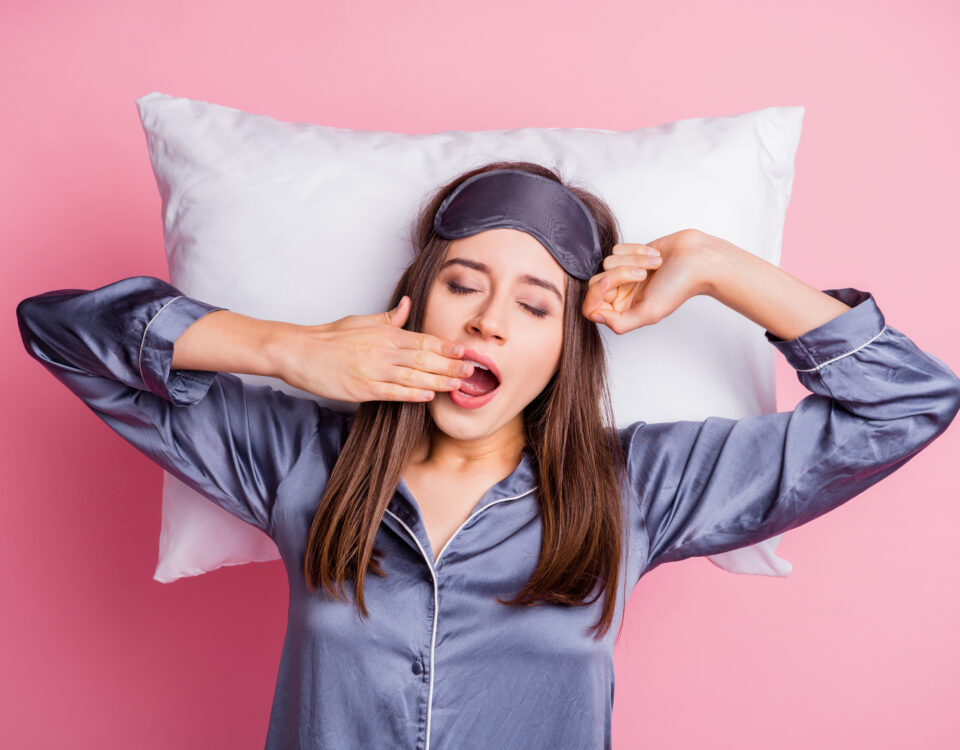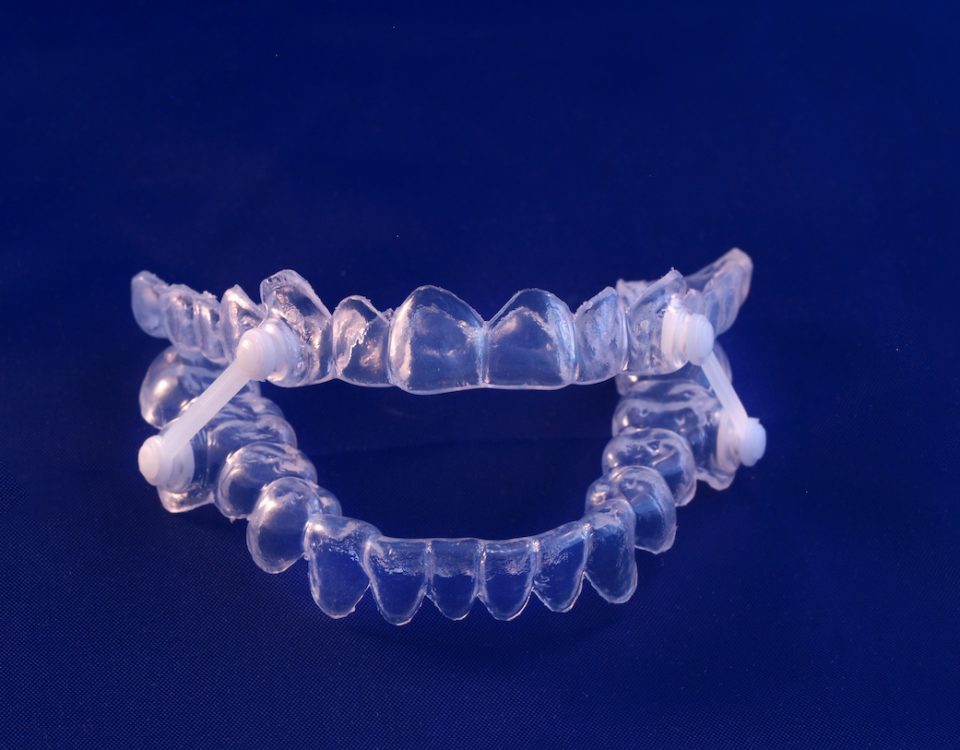Does Sleep Apnea Affect Dental Health?

Understanding Tooth Stains and Their Top Treatment Methods
February 16, 2024
5 Signs You May Need to Remove Your Wisdom Teeth
February 29, 2024A surprising connection exists between the quality of our sleep and the well-being of our oral cavity. While the loud snores of a loved one might be the most noticeable sign of sleep apnea, there are lesser-known, often silent, signs of this sleep disorder that can manifest in your mouth. In this comprehensive guide, we will explore the intricate relationship between sleep apnea and dental health, providing actionable insights for better sleep and a healthier smile.
Why Should You Care About Sleep Apnea and Dental Health?
Sleep apnea isn’t merely a nighttime nuisance. It’s a potentially serious condition that disrupts your sleep, causing you to stop and start breathing repeatedly. It can lead to a range of health concerns, from daytime fatigue to cardiovascular issues. What most people don’t realize is that sleep apnea can directly impact your dental health.
Dental Hygiene Amidst Sleep Troubles
Sleep apnea and oral hygiene might seem unrelated, but the two share an intimate connection. The interrupted breathing and resulting dry mouth associated with sleep apnea can lead to various dental issues such as:
- Cavities: A dry mouth is ripe for cavities as saliva is your body’s natural defense against tooth decay. Without it, harmful bacteria can more easily damage your teeth.
- Gum Disease: The lack of saliva can promote the growth of bacteria in the gums, leading to inflammation and, ultimately, gum disease.
- Bruxism: Many people with sleep apnea also grind or clench their teeth during the night, a condition known as bruxism. This can lead to tooth wear, fractures, and even loosening of your teeth over time.
- Mouth Breathing: Sleep apnea often causes mouth breathing, which can lead to dry, cracked lips and contribute to an imbalance of bacteria in the mouth.
By understanding these risks, you can better manage your dental health when coping with sleep apnea.
Recognizing the Signs: Oral Symptoms of Sleep Apnea
Ignorance of the signs can lead to a delayed or missed diagnosis, potentially worsening the effects of sleep apnea. Therefore, it’s essential to look out for these oral indicators:
Insidious Indicators in Your Mouth
- Chronic Bad Breath: Persistent bad breath, or halitosis, is commonly linked to dry mouth, a common symptom of sleep apnea.
- Jaw Pain: Bruxism can cause pain in the jaw, which can be a strong tell-tale sign of poor sleep quality and lead to the identification of underlying sleep disorders.
- Excessive Thirst: Waking up at night feeling parched indicates lack of hydration, often associated with sleep apnea-induced mouth breathing.
Being aware of these oral symptoms can prompt you to seek medical and dental advice, providing an opportunity for early intervention and proper diagnosis of sleep apnea.
Managing Sleep Apnea and Dental Health with Lifestyle Changes
In many cases, lifestyle adjustments can make a significant impact on both sleep apnea and dental health. It’s about integrating habits that support restful sleep and a healthy mouth.
The Role of Diet and Exercise
Improving your diet can not only reduce the risk of sleep apnea but also enhance dental health:
- Weight Management: Obesity is a significant risk factor for sleep apnea. By maintaining a healthy weight through proper diet and exercise, you can lessen the severity of sleep apnea symptoms.
- Nutritious Choices: Foods rich in vitamin C and omega-3 fatty acids can help combat gum disease, one of the potential side effects of sleep apnea.
Regular physical activity has been shown to reduce the severity of sleep apnea symptoms. Additionally, exercise routines that promote jaw and tongue strength can be beneficial.
Oral Hygiene and Sleep Regimen
Both daily oral care and sleep hygiene practices are crucial in managing these interconnected concerns:
- Brush and Floss: Excellent oral hygiene is essential for those with sleep apnea. Regular brushing and flossing, along with alcohol-free mouthwash, can help control plaque and bacteria that lead to dental issues.
- Oral Devices: Special oral devices, such as a CPAP machine, can help keep airways open during sleep, reducing the incidence of apnea and the associated dental issues.
- Sleep Environment: Creating a conducive sleep environment—dark, quiet, and comfortable—can improve the quality of sleep, reducing the likelihood of disturbances that exacerbate sleep apnea.
By combining these lifestyle modifications, you’re not only lessening the impact of sleep apnea on your oral health but also enhancing your overall well-being.
Professional Interventions for Better Sleep and Oral Hygiene
When lifestyle changes aren’t enough, various professional treatments and therapies can offer relief from sleep apnea and its oral effects.
Dental Treatments for Sleep Apnea
- Oral Appliances: Mandibular advancement devices (MAD) or tongue-retaining devices can be custom-fitted by a dentist to adjust the position of the tongue and lower jaw, keeping the airway open during sleep.
- Surgery: For severe cases of sleep apnea, surgical options exist to remove tissue from the throat that may be blocking the airway or to correct structural abnormalities that contribute to the condition.
- Dental Implants: In cases of tooth loss due to complications of sleep apnea, dental implants can restore your smile and oral functionality.
Sleep Specialists and Orthodontics
Seeing a sleep specialist can help diagnose and treat sleep apnea most effectively. Orthodontic treatments can also play a significant role in improving both conditions:
- Orthodontic Options: Correcting misalignments with braces or other orthodontic treatments can improve jaw positioning and, subsequently, airway volume and breathing.
- Continuous Positive Airway Pressure (CPAP): The most common and effective treatment for sleep apnea, CPAP delivers air pressure through a mask to keep airways open during sleep.
Make an Appointment with Premier Dentistry of Eagle
Proper oral health is vital for overall well-being, particularly when dealing with a chronic condition like sleep apnea. At Premier Dentistry of Eagle, our team provides personalized care to help manage and prevent dental issues related to sleep apnea. Contact us today to make an appointment and take control of your dental health.


